prg.ai newsletter #20: Prague AI scene success stories of 2021
We highlight a year-worth of impactful projects, high-quality academic work, and leading business innovation on behalf of our industrial members as well as other architects of the Prague AI ecosystem.
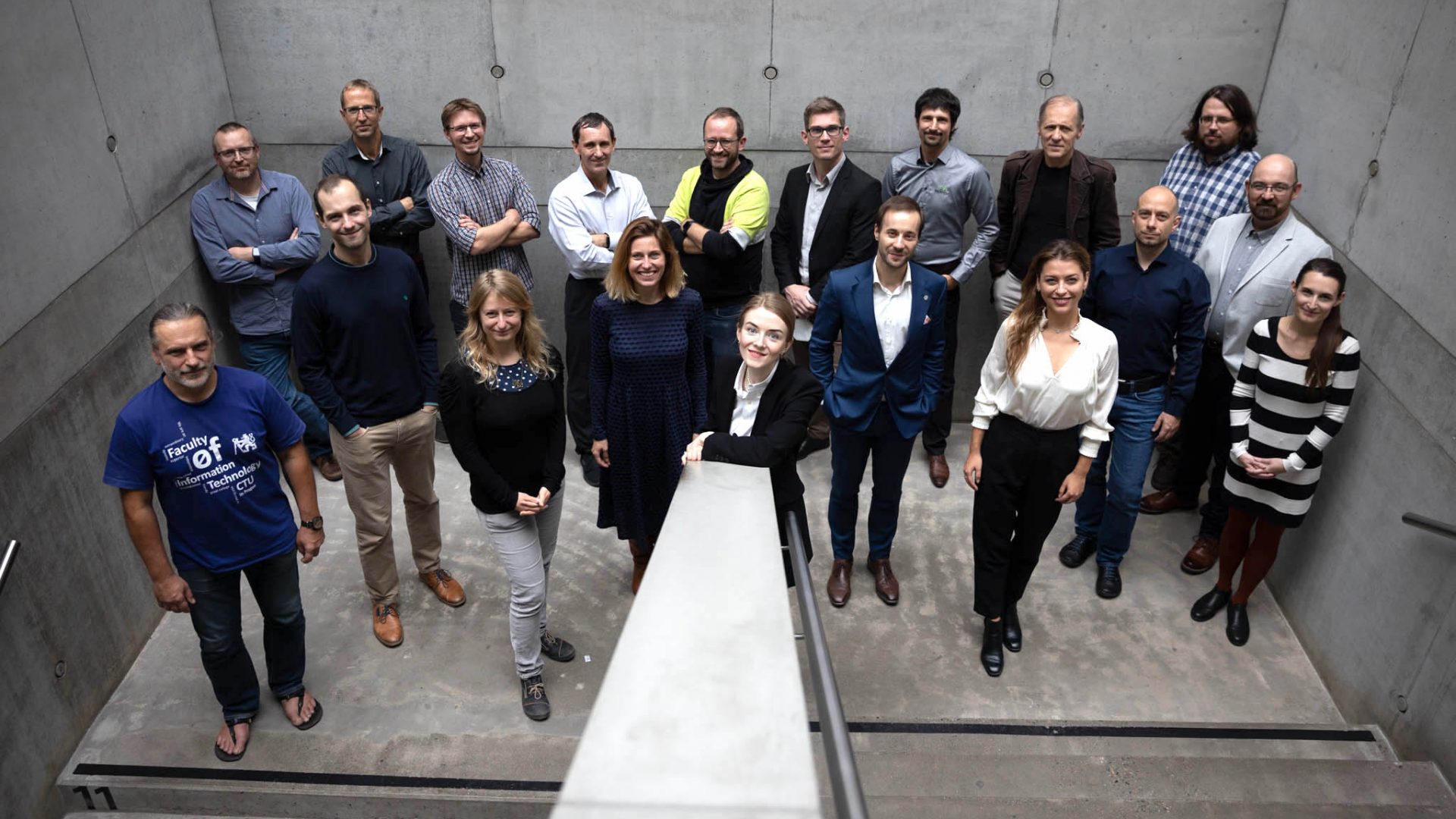
2021 has been a rollercoaster, definitely deserving a special edition of our monthly newsletter to celebrate what it brought. But first, we’d like to draw your attention to 2022.
Why? Because prg.ai is looking for a new Executive Director to steer the exciting projects we have in store for this year. To express your interest in the position, send your resumé and a short motivation letter to the current Executive Director Lenka Kučerová at lenka@prg.ai before the end of the month.
🏡 What we accomplished at prg.ai
BUILD
Setting out ambitious TAČR projects
Last year, we partnered with the Institute of State and Law of the CAS and CUNI’s Faculty of Social Sciences on a project titled Legislative obstacles to processing big data in service of artificial intelligence. The aim of the project is to support Czech industry and AI development and investigate the legislative barriers to big data processing for AI-based startups and industrial companies. We will also develop a methodology to identify, retrieve, and process data in accordance with the law.
For the second project named Artificial intelligence and human rights: risks, opportunities, and regulation, we partnered with Ambis University, FEE CTU, and Masaryk University. It seeks to identify and assess risks and opportunities in the relationship between AI and human rights.
Securing a two-year funding grant
We are honoured that the City of Prague awarded prg.ai 9.5 million CZK in funding for 2021 and 2022. We highly value our city’s support for innovation as well as its commitment to developing a world-class education, science, and business environment. As one of our original founding members, the City of Prague has been an essential partner on our path toward transforming our metropolis into a European AI hub.
Welcoming new industry members
In 2021, we welcomed Memsource, DNAi, and Valeo into our prg.ai family, and we are grateful that such outstanding businesses support us in our vision.
Memsource helps global organisations with efficient translation while developing their AI-powered Translation Management System. On the other hand, DNAi focuses on transforming cutting-edge research into commercial AI designs, specialising in building digital twins for manufacturing, healthcare, and other segments.
Last but not least, Valeo is an expert on mobility. Focused on integrating AI into the automotive industry and developing self-driving and self-parking vehicles, Valeo joins prg.ai as a representative of this ever-growing application of AI in transportation.
COME
Connecting AI researchers
In February, we threw our second virtual meetup for AI research newcomers to introduce their area of research, get useful information, and make new acquaintances. Over 20 people starting their positions at the Czech Technical University, Charles University, and the Czech Academy of Sciences from 10 countries joined.
By summer, the pandemic situation allowed us to hold our third AI researcher meetup in person at the Letná Beer Gardens. We were excited to be joined by such a diverse group of researchers, with seven nationalities and three academic institutions represented. They shared their experiences of relocating to Prague for study or research, praising our Practical Guide for a Happy Life in Prague as a useful resource assisting their move.
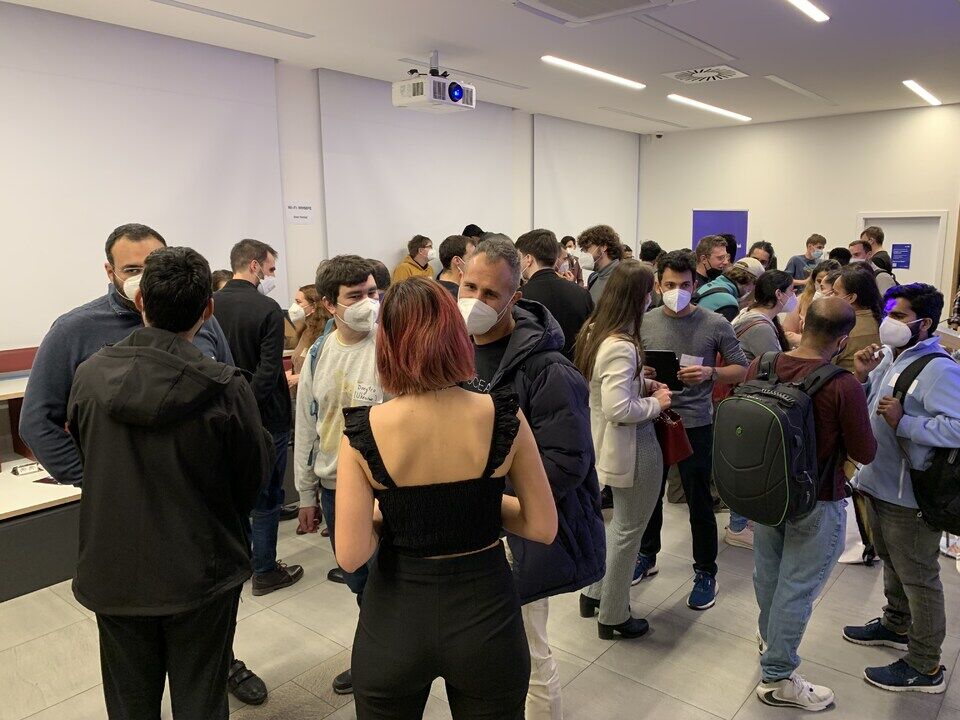
And since the third time’s the charm, we organised another opportunity for international researchers to meet and discuss their work in October, this time in cooperation with Prague Expat Centre. We welcomed over 70 researchers from our Prague’s International Researchers’ community, and the attendees had the opportunity to network, establish personal ties, and exchange insights from their experiences living and working in the Czech capital.
PROMOTE
Sharing more of prg.ai
In 2021, we launched our brand new prg.ai website, which has become the go-to place for you to find an up-to-date overview of Prague’s AI ecosystem, as well as to always stay in the loop on news, events, and other gripping AI content.
Venture into the Local AI scene to find a database of nearly 200 companies, academic research groups, and other entities we compiled throughout the past year. In addition, our website now features our very own content platform Journal, which strives to provide information, insight, and food for thought to our varied audiences.
TEACH
Introducing AI into highschools
Throughout 2021, five grammar schools and secondary technical schools took part in the AI Academy, a programme designed to create teaching and study materials for secondary ML/AI education, supported by the City of Prague alongside ML College.
In the summer months, we ran a five-day summer school organised with the Smíchov Secondary Industrial School and a follow-up workshop with teachers from the selected schools providing deeper insight into the subject.
As the culmination of these preparatory events, five schools integrated AI/ML into their informatics curricula at the start of the school year, marking the pilot stage of integrating artificial intelligence into high school curricula state-wide.
Launching the Czech version of Elements of AI
In March, we launched the Czech version of Elements of AI, a free online course aiming to demystify AI to the general public while shedding light on its capabilities and limitations. Since the takeoff, we have welcomed over 7,000 registered participants and more are joining every day.
Celebrating first graduates of prg.ai Minor
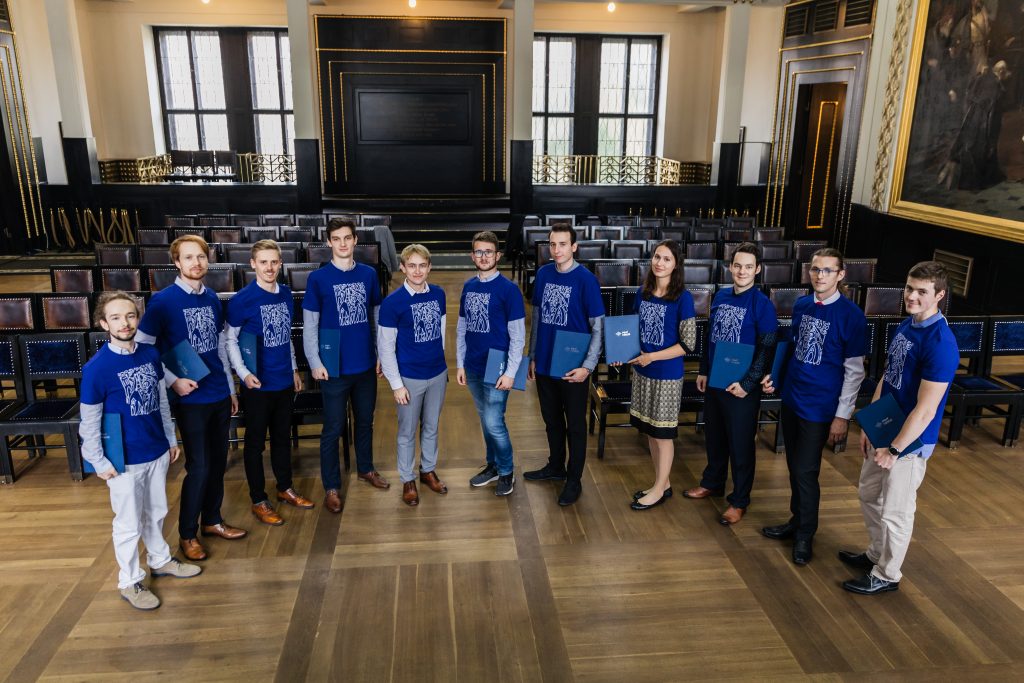
prg.ai Minor, our unique interuniversity programme, also celebrated its very first batch of graduates this year. On 5 October, we welcomed Prague’s Mayor Zdeněk Hřib, Councillor Vít Šimral, as well as representatives of the two participating universities to the programme’s first-ever graduation ceremony. Successful students received their diplomas to recognise the unique academic insights they gained while learning about AI, from robotics to ethics.
👏 Members’ news that made us proud
ACADEMIA
Czech Technical University rose through the international ranks
As of this academic year, the Czech Technical University in Prague has leapt forward in the prestigious QS World University Rankings. Since last academic year’s report, it managed to overtake 29 other universities, making the current 403rd rank the best in the QS Ranking history for CTU.
And personal rankings of CTU researchers are a testament to the high quality of research, too: Professor Matas from the Department of Cybernetics at CTU is the highest-ranked computer scientist from the Czech Republic.
In addition, the international Guide2Research ranking evaluated the success of computer scientists based on their H-index, citations, and the number of papers in the DBLP database, and the Top Computer Scientists Ranking includes all leading computer scientists from the Czech Republic. The success of the CTU is underlined by the fact that it has four representatives among the top five scientists in the Czech ranking: Dr. Josef Šivic is second, doc. Tomáš Pajdla third, and Tomáš Mikolov fifth.
Gold medals and a new department for the CTU CIIRC
Alquist the chatbot, developed by a team of students led by Jan Šedivý at the CIIRC CTU, ranked amongst the best in the prestigious Amazon competition Alexa Prize for the third year in a row. On August 16, Amazon announced the winners of the fourth year of the Alexa Prize Social Bot Grand Challenge, and after three years of occupying the silver and bronze positions, the CIIRC CTU team won the gold medal. Aside from worldwide recognition among elite teams from prestigious institutions, the win also secured the group $500,000 in prize money from Amazon.
Shortly after that, a new CIIRC department dedicated to AI innovation saw the light of day. Led by Josef Urban and split into four independent research groups, it focuses on distinct research areas and strives to strengthen foundational research outputs, essential for robust, practical innovation and application of algorithms to new problems.
Robots, drones, and the future of mobility at the FEE CTU
FEE’s robotics center, known under the acronym CRAS, received a prestigious $1.5 million grant from the US agency DARPA last year, intended to fund its development of autonomous robots. In addition, the work of FEE researchers has been recognised in the latest edition of the Amazon Research Awards, announced in May 2021. Jiří Matas and Jan Faigl, professors affiliated with the CTU’s FEE, were awarded for their work aiming to devise a way to model better communication maps for robots and first responders, even in precarious underground terrain. Their promising research could give rescue workers more control as well as make rescue missions safer and more effective.
CTU’s competition team celebrated success in the DARPA Subterranean Challenge finals in Kentucky, USA. Czech representatives were looking forward to these ‘Robot Olympics’ with a good deal of anticipation, given their bronze medal from 2020. In 2021, they placed 6th in the physical competition and 2nd in the virtual one, taking home $500,000 in prize money. They were invited to speak about their success on ČT1 during prime time – you can watch a recording of their interview here.

And the AI Center FEE CTU saw other successes last year, too: from fighting disinformation to forming the future of city-bound air travel, they are busy with an exciting range of new high-profile projects. In July 2021, they signed a research contract with the US aerospace company Bell Textron Inc. to develop passenger decision models using both the existing ground transportation and the future air taxi transportation.
Delivering Czech science loud and clear
September was a month of recognising and rewarding achievements in science communication. FEE CTU AI Center’s new website achieved second place in the Gold Semicolon Awards. Yet, CTU wasn’t the only one of our members celebrating success during the festive ceremony: Czech Academy of Sciences’ AΩ / Věda pro každého magazine won its category and got recognised for its achievements in science popularisation.
FIT CTU is plunging into the Metaverse
Navigating new virtual reality worlds may become trickier than it initially seems, but the CTU’s FIT is eager to stay on top of the new challenges. At the faculty, a unique virtual reality classroom opened in December, and with its 25 VR headsets ready for use, it is among the best equipped in the region. Students can look forward to exploring new forms of learning, creating, and expressing themselves in a fully virtual world. To complement the new facilities, CTU is also planning to open a new elective course centred around understanding and properly implementing virtual reality technology.
AI collaborations make strides at CUNI’s MFF
CUNI’s Faculty of Mathematics and Physics established a new research group headed by researchers Martin Žonda and Pavel Baláž set to study the potential of applying machine learning strategies to physics. Thanks to the new research focus, students at the MFF can also look forward to the opportunity of following a brand new elective focused on introducing them to AI applications within the field of physics or other natural sciences.
Experts from CUNI will also work with CTU’s experts within the framework of the new Central European Digital Media Observatory (CEDMO). Its aim is an interdisciplinary research into misinformation, including its detection with the help of elements of AI, strengthening digital and media literacy and the development of fact-checking platforms. The project forms part of the European Digital Media Observatory network and will be supported by the National Recovery Plan of the Czech Republic. It is also the first step in building the European Center of Excellence in AI.
INDUSTRY
In the past year, our industrial members featured prominently in the Deloitte Technology Fast 50 Central Europe 2021. Both DataSentics and Recombee featured in the regional ranking and received international recognition for their extraordinary growth and success. DataSentics claimed the 8th spot among all technological fast-growers from across central and eastern Europe, and Recombee scored in the national Top 50, claiming the coveted 30th rank.
Rossum raised $100 million for international expansion
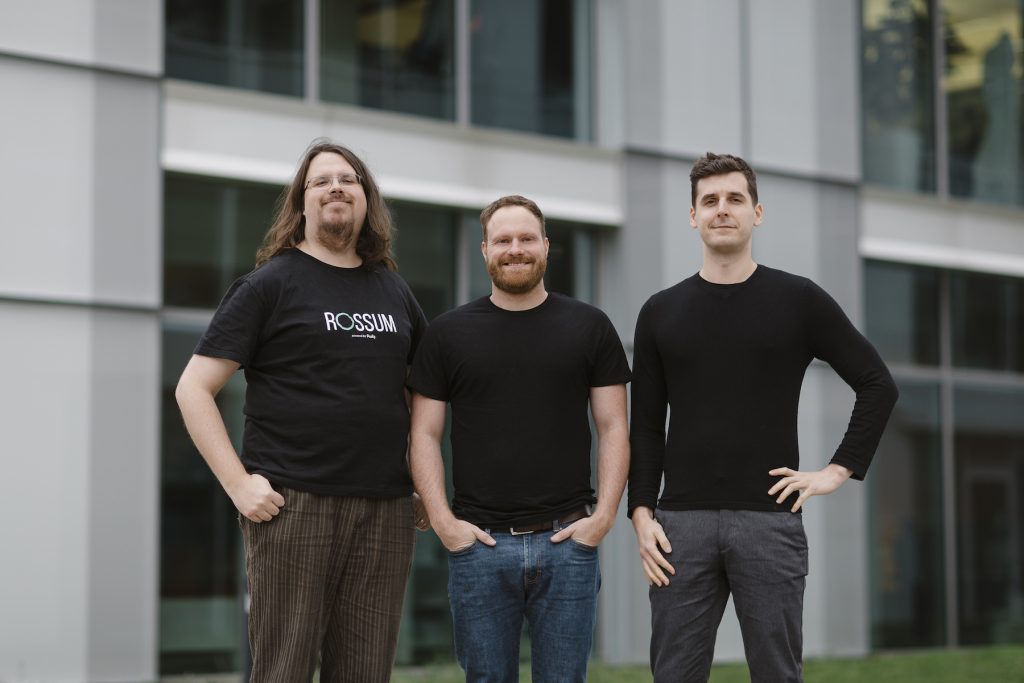
Rossum, the Czech AI company reinventing the way businesses send documents to each other, raised $100 million for further development in October, which includes building an AI research centre in Prague in collaboration with Czech universities. Their innovative collaboration on automated processing of e-mail orders has recently scored them the Open Bosch Award for the world’s best open innovation projects, integrating them into the Bosch start-up network.
DataSentics is utilising its global potential
In 2021, DataSentics finalised its exit worth millions of euros. The Prague-based AI product studio will now join a global network led by the renowned Atos group based in France: as a result, its AI and ML-enabled products and solutions will become available to new clients worldwide. One of such products which has received notable attention in 2021 is an application that will make life easier for the visually impaired. The tool called Shelf Inspector is able to tell the user by phone what goods are on the store shelf and how much they cost. DataSentics is hoping to scale up its use and ensure it can assist even more people around the world.
Avast’s blockbuster acquisition
Avast has been at the centre of one of the biggest deals finalised last year: Norton Lifelock has agreed to acquire it for 8 billion dollars. Not only does this transaction prove that Czech tech companies can relish global significance, it also shows that companies can achieve success while taking care of the local ecosystem and beyond. As one of our industrial members, Avast has financially supported prg.ai’s activities since the very beginning, and its foundation has built up young artists, funded elderly care organisations, or provided for families in need.
Investors entrust millions to Resistant AI
Resistant AI, the Czech SaaS-based AI and ML security company that protects financial services from manipulation, fraud, and financial crime announced a $16.6 million investment in its Series A which was announced in October, marking the growing need for intelligent, adaptive defence mechanisms. The round was lead by GV and joined by existing investors including Index Ventures, Credo Ventures, Seedcamp, and several angel investors. The funding will be used to meet increasing demand from global financial institutions and to build out Resistant AI’s product, engineering, and sales operations teams beyond Prague, London, and New York.
GoodAI supports research as well as international efforts to strengthen AI ethics
In 2021, GoodAI donated $24,000 from its $300,000 total grant fund to a group of researchers led by Tomáš Mikolov from the Czech Institute of Informatics, Robotics and Cybernetics at CTU. The grant will support the realisation of a project aiming to accelerate the research into human-level artificial intelligence. Aside from that, the broader GoodAI Grants program, which awarded $777,000 toward AI research to date, is currently supporting eight on-going research projects on a variety of ML topics related to Badger architecture. Outcomes of funded research have resulted in five new published papers on techniques of multi-task learning, Noether Networks, and reinforcement learning, just to name a few.
GoodAI research is also leaving its mark on the international field. GoodAI’s Marek Havrda participated in the U.N. text’s development process for a year and half through regional consultations and supporting the joint European Commission position. Contributions focused on strengthening the language surrounding human agency, rights, and fundamental civil and political freedoms, while highlighting the inherent dangers behind human cognitive biases and offering tools for remediation.
The beautiful — and international — city of Prague
Courtesy of the TimeOut Magazine, Prague has been voted the most beautiful city in the world, beating New York, Paris, and Chicago to the punch. More recently, it has been deemed the 7th best city for expats according to InterNations.
📍 From the local AI scene
First AI diagnosis tool got certified for use
It’s official: since September 2021, the Czech Republic has its first AI diagnostic tool certified for medical use. The team behind Aireen are hoping to extend the technology even further, eventually aiming toward the ability to diagnose multiple diseases with a single screen of the blood vessels in a patients’ eye. The project is backed by Tensor Ventures in collaboration with Neovize’s ophthalmology clinics.
SentinelOne is moving in
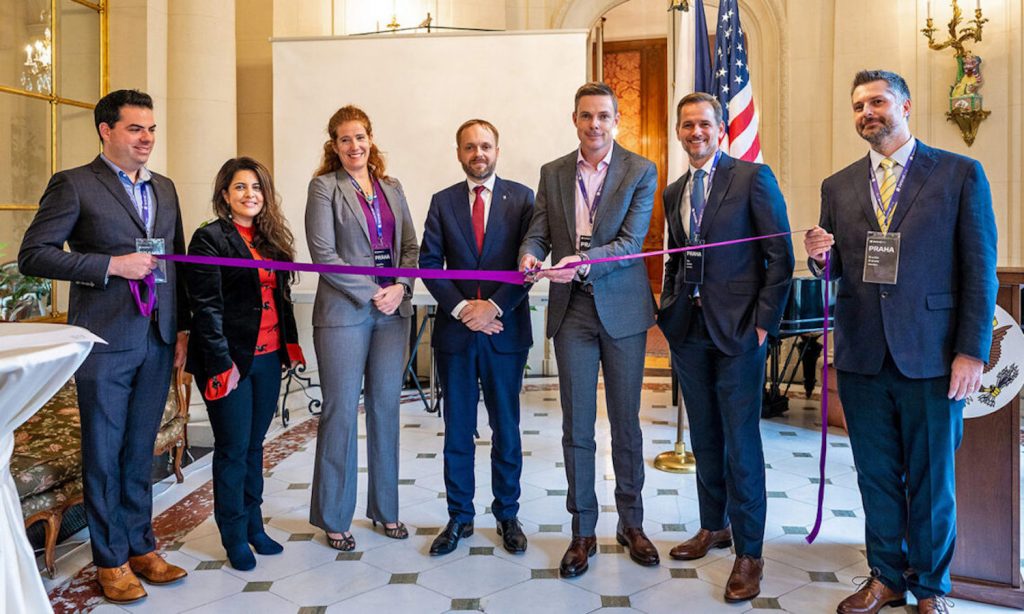
American software startup SentinelOne opened its new innovation hub in Prague in October, investing over a billion Czech crowns into what stands to become its main European engineering centre. Over the next three years, it plans to employ over 300 cybersecurity experts and tap the exceptional expertise of Czech technical universities.
Czech Republic at the helm of early AI adoption
In November, the European Commission has released its Digital Economy and Society Index (DESI) for 2021, which lends itself to comparisons among member states. And the Czech Republic can be proud of its comparative standing across many of the criteria, particularly when it comes to industrial adoption of artificial intelligence and machine learning strategies, where the Czech Republic took the first spot and surpassed all other European states.
Next up from prg.ai

Typical Prague AI firm is young, self-sufficient, and export oriented, shows our new comprehensive study
130 companies, 11 interviews, 9 business topics. Explore all that and more in the unique study authored by prg.ai, which contains an overview of last year's most notable events on the local AI scene or articles on the future of AI or gender equality in research.
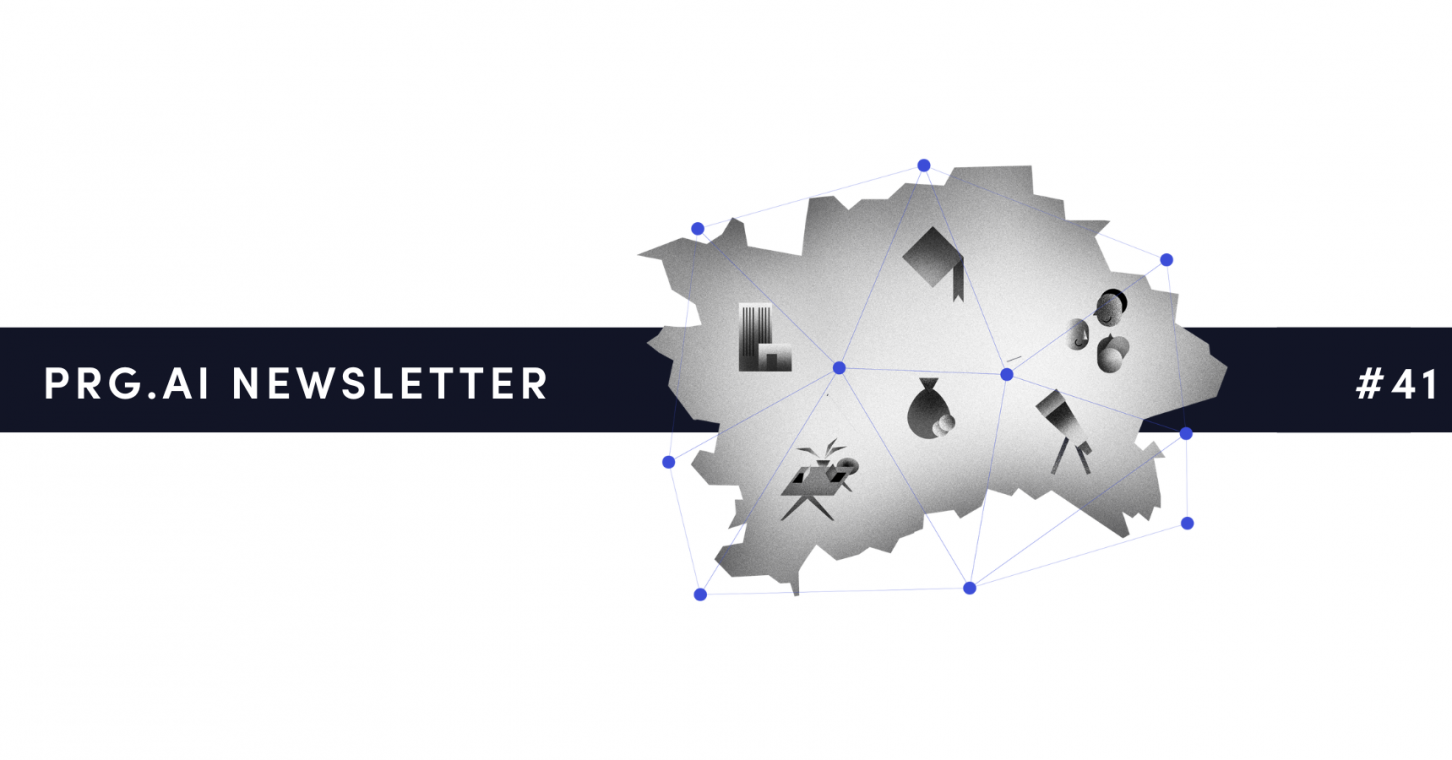
prg.ai newsletter #41
The first spring edition of our newsletter! Get the latest prg.ai updates, exciting news from the Prague AI scene, a curated list of interesting events, open positions, and much more. Stay in the loop!
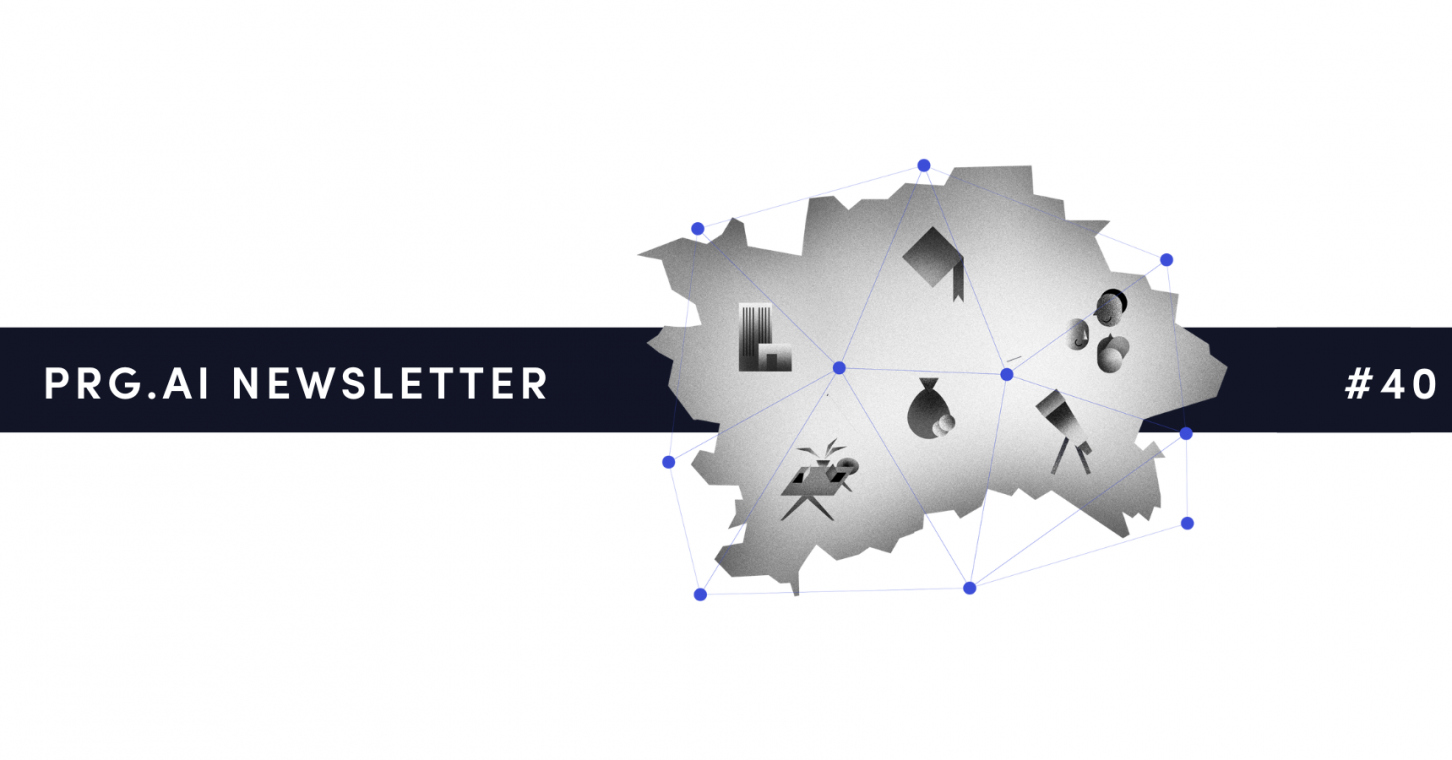
prg.ai newsletter #40
The fortieth milestone issue of the prg․ai newsletter is packed with news and intriguing facts not only from the Prague AI scene. Keep reading so you don't miss out on anything!
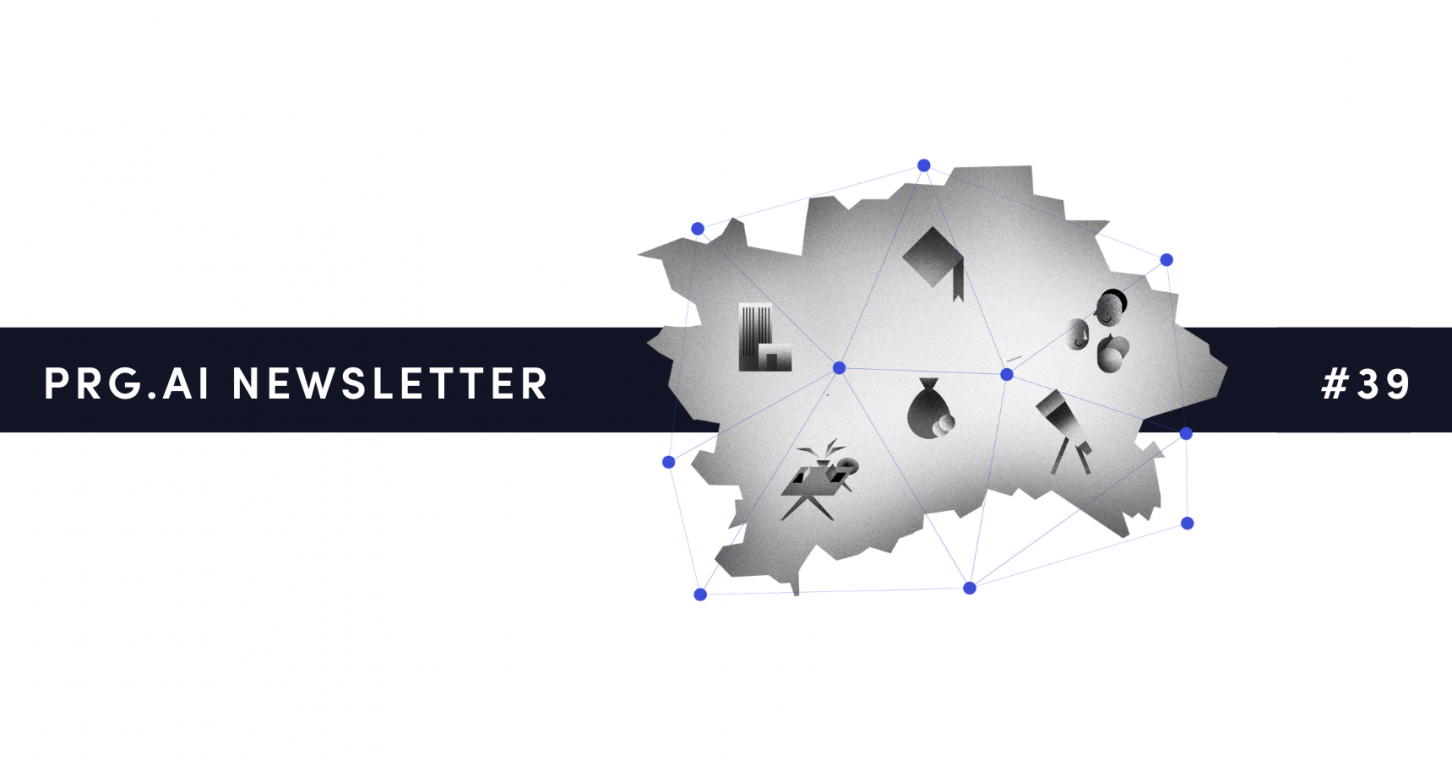
prg.ai newsletter #39
What did the first month of 2024 bring, and what can you look forward to in February? Find out in the next prg.ai newsletter. Check out what's new on the artificial intelligence scene (not only) in Prague.

